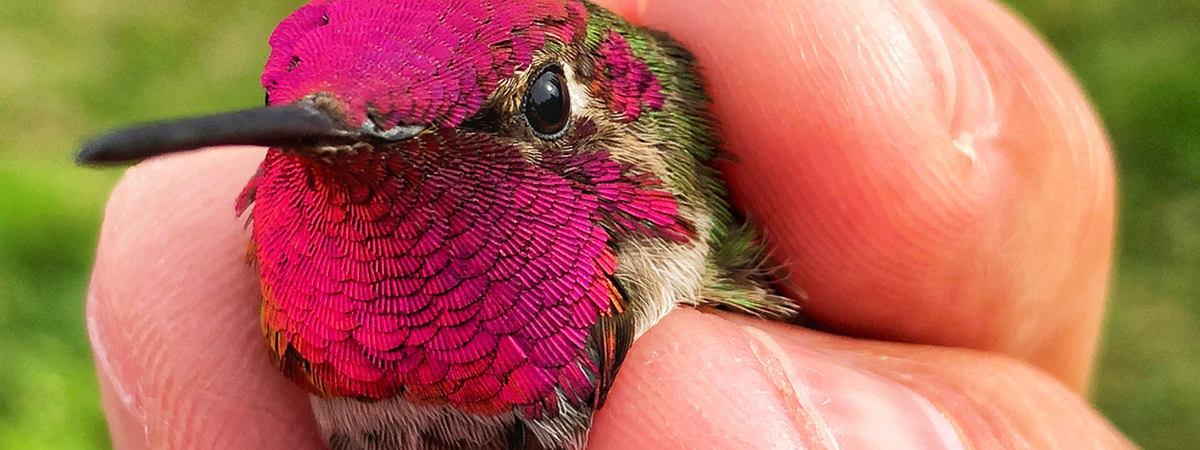
Wintering hummingbird care
Posted by Devin Manky January 23, 2019
Each winter we receive quite a few notes or calls about people who are confused to still see hummingbirds coming to their backyard feeders. It might surprise you to know that one species, Anna's Hummingbird (Calypte anna), spend the winter here in the great Vancouver area. Traditionally it is thought that these birds were short distance migrators heading down into the United States and the warmer coastal areas. But with the influx of people to the Vancouver and Vancouver Island areas there was also an increase in food availability in the form of human planted flowers and feeders.
Now quite a few stick around for the worst months of the year and they've even been known to start breeding in late January or February if conditions are right.
If you are an avid hummingbird watcher and feeder then there are a few things you can do to help make the winter months easier for these little creatures. The first thing is to maintain a feeder for them to drink nectar from. Hanging these in sheltered areas will help prevent wind or snow buildup and provide a respite while the birds are getting a drink. Please make sure to hang the feeders away from any fences or strong tree branches to prevent house cats from using these as a perch to launch attacks against the unsuspecting hummingbirds.
During cold snaps, it's a real help if you can bring your feeder inside for the night time. Hummingbirds will feed until approximately 30 minutes after dusk and then go into a torpor for the night time and awake just before dawn to feed. So if as much as possible you can bring your feeder in after dark and set it out just before sunrise it will help prevent it from freezing up. You can also help slow down freezing by using a slightly richer feeding nectar of three parts water to one part sugar (summertime recommendation is four parts water to one part sugar). The more sugar in the water and the slower it will freeze. Using more than this 3:1 ration could cause harm to the hummingbirds and is not recommend.
Also, make sure to clean and disinfect your feeder at least once per week - more often if the temperatures warm up. Using a mild 1% bleach solution will kill any bacteria or viral buildups and help prevent the spread of bird disease which can be quite common on some feeding stations. As birds are spending all their resources to find food and stay warm in the winter it is a lot hard for them to fight off disease as well. Keeping a clean feeder and fresh sugar nectar solution will really help these guys and gals out!
Finally, make sure to enjoy watching these marvelous birds as they zip in for a feed and know you are really helping them out by providing an easily accessible food source during the cold winter months.


